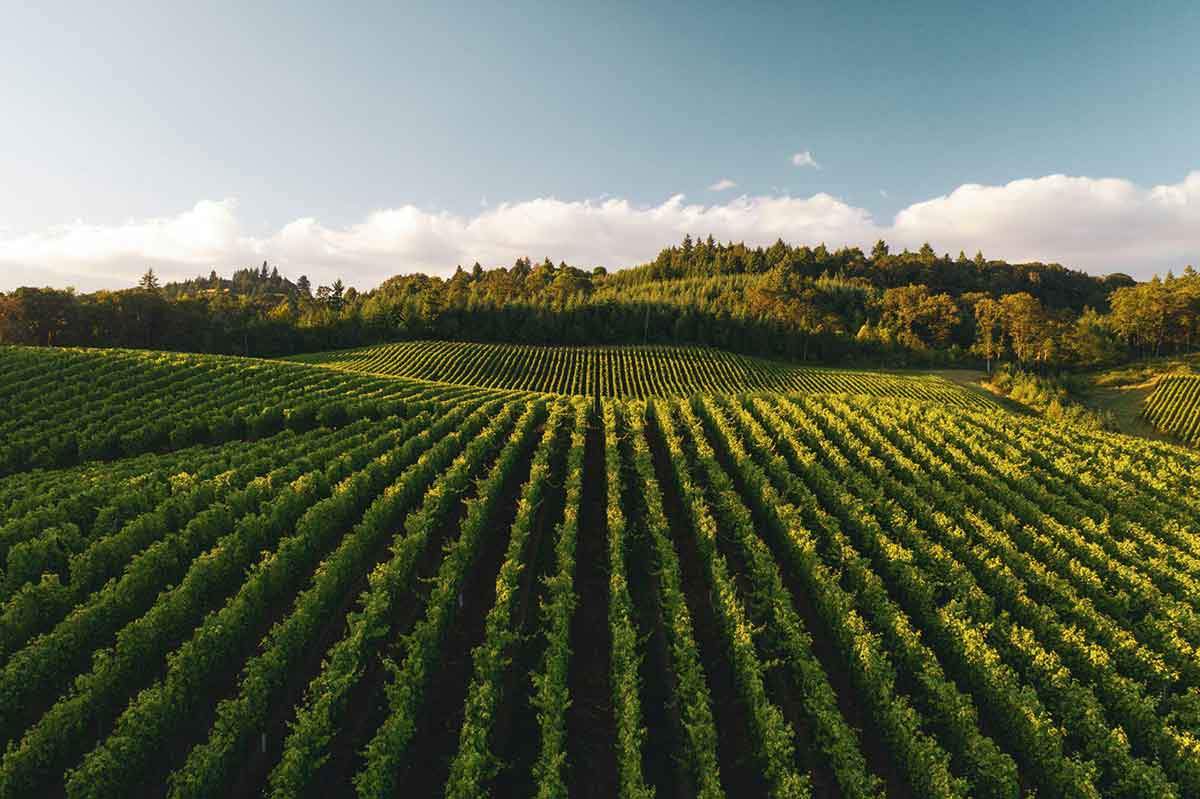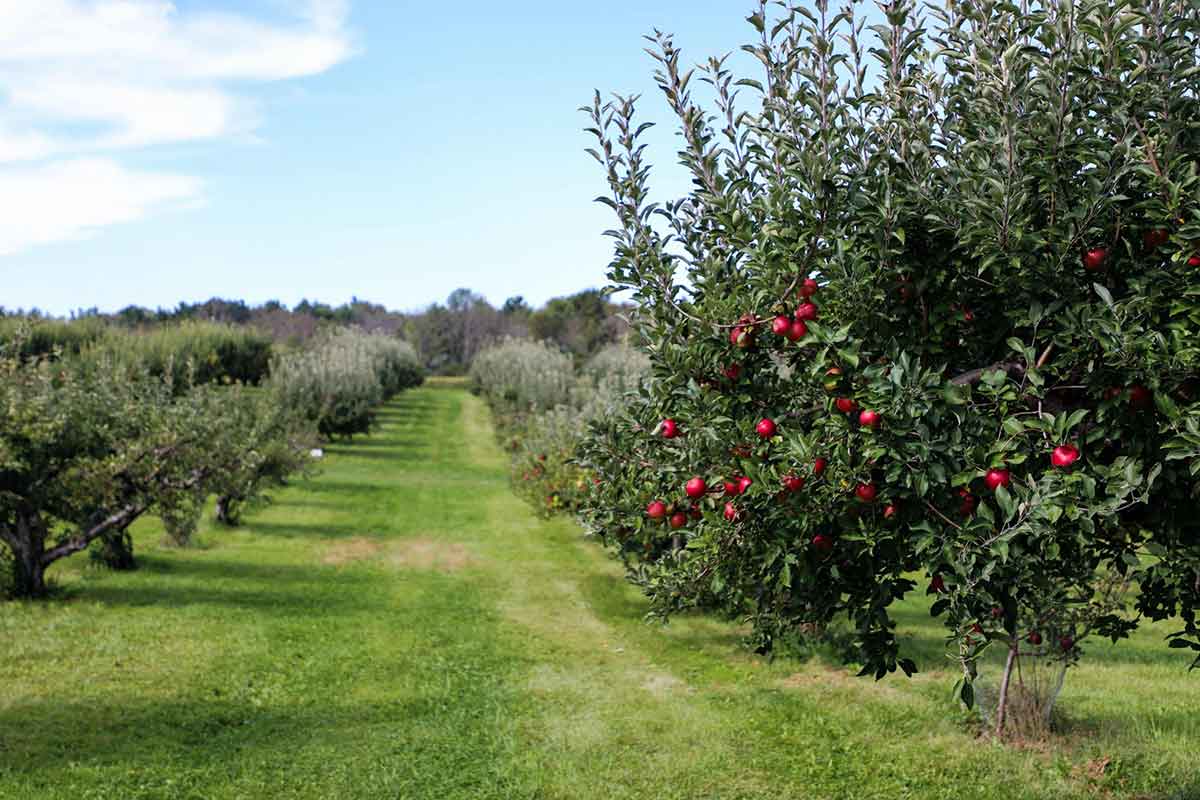The UK wine-growing industry has grown massively in the last few decades. According to Saffrey Champness, the land covered by vineyards in this country has risen by 175% in the last 10 years to 3,800 hectares. With English wines garnering plenty of praise, starting a vineyard can seem like an attractive proposition for smallholders. However, there is a lot of preparation and work to do before achieving success.
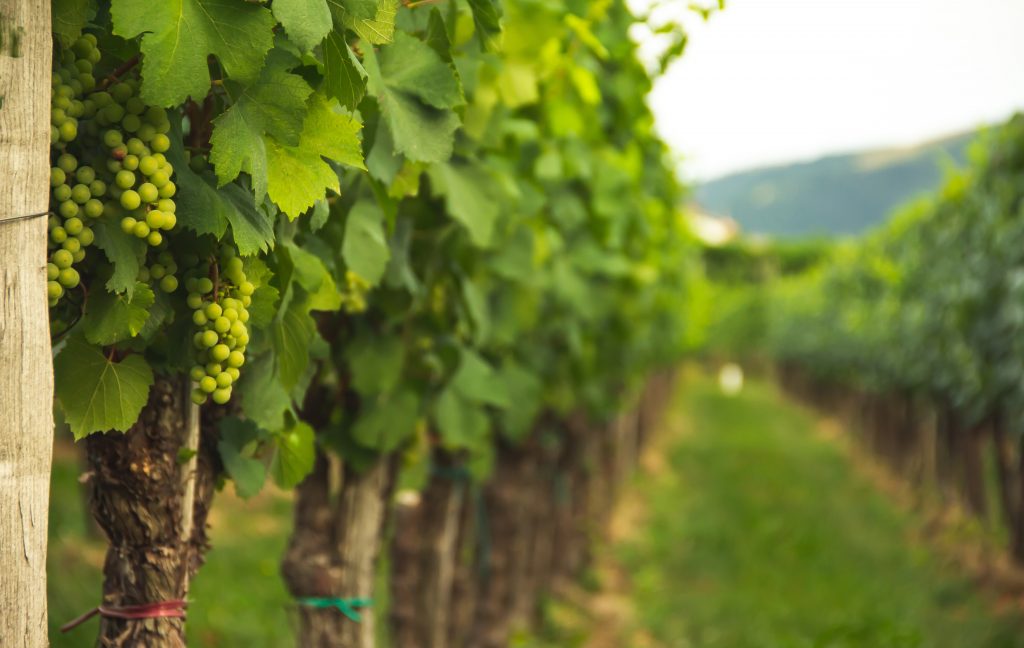
Things to Consider
One of the biggest considerations for starting a vineyard is finances. Saffrey Champness estimates the cost of starting a vineyard from scratch at £25,000 to £30,000 per hectare. Strutt & Parker suggest 5 acres for selling directly to consumers, or 10 acres for wholesalers, in order to run to a profit. Future vintners should be aware that the first few years are likely to show losses when starting from scratch, as the vines will take time to produce, and the fermentation process will take a couple of years at least. Buying an established vineyard may be another option.
The land itself is vital, as the type of soil, access to water and orientation will all effect the taste of the grapes, as well as the varieties you are able to cultivate. The ideal land is a free-draining, south-facing slope, with higher temperatures, plenty of sunshine hours and no late frosts. This will produce the most grapes. The slope should not be too high, as this will make maintenance more difficult and more expensive.
The equipment you need will entirely depend on how you intend to use your produce. If you wish to sell your grapes on to another producer or contract someone to make the wine, the most you will need is a compact or vineyard tractor, and a topper or flail mower. However, if you plan to make your wine onsite, you will need a host of machines, such as a pasteuriser, fermentation tank, or a bottler. It is important to know which model is right for your needs.
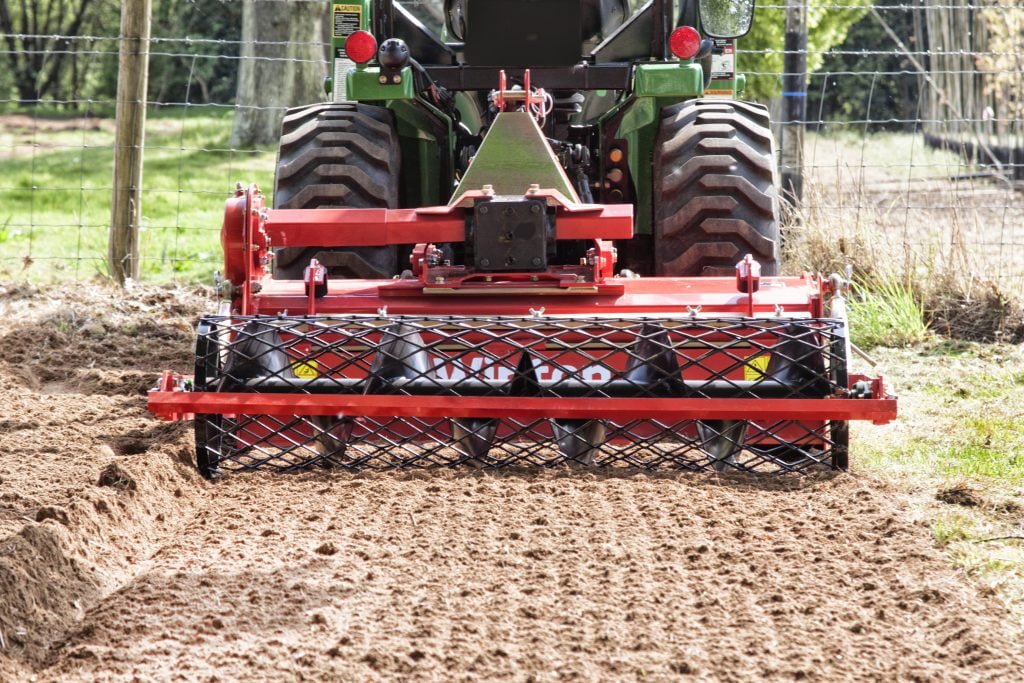
Planting
Virgin land will need to be prepared for planting, which can be achieved with a power harrow or a rotovator. Stony soil can be prepared with a stone burier, which will bury stones under a layer of soil. The soil will need testing for its nutritional value and pH, which should be between 5.5 and 6.5, 7 at the very highest. If the soil is lacking in nutrients vital for vine growth, or the pH is too high, this will need to be amended.
The optimal balance for growing grapes efficiently requires vines to be close enough to get the most out of the space, but far apart enough to prevent vines overshadowing each other. This can depend on the variety, but generally there should be 3 feet between vines in the row, and at least 6 feet between rows. Planning this ahead of time will allow you to calculate how many vines you will need, as well as setting up trellising and fencing. A post hole borer can help with this.
It is a good plan to speak to other local vineyards about which varieties have worked well for them, as this will give you an idea of what variety of grape will best serve your needs. When buying rootstock, make sure that they are free from disease. You will need to decide whether to protect your crop with chemicals or organic methods.
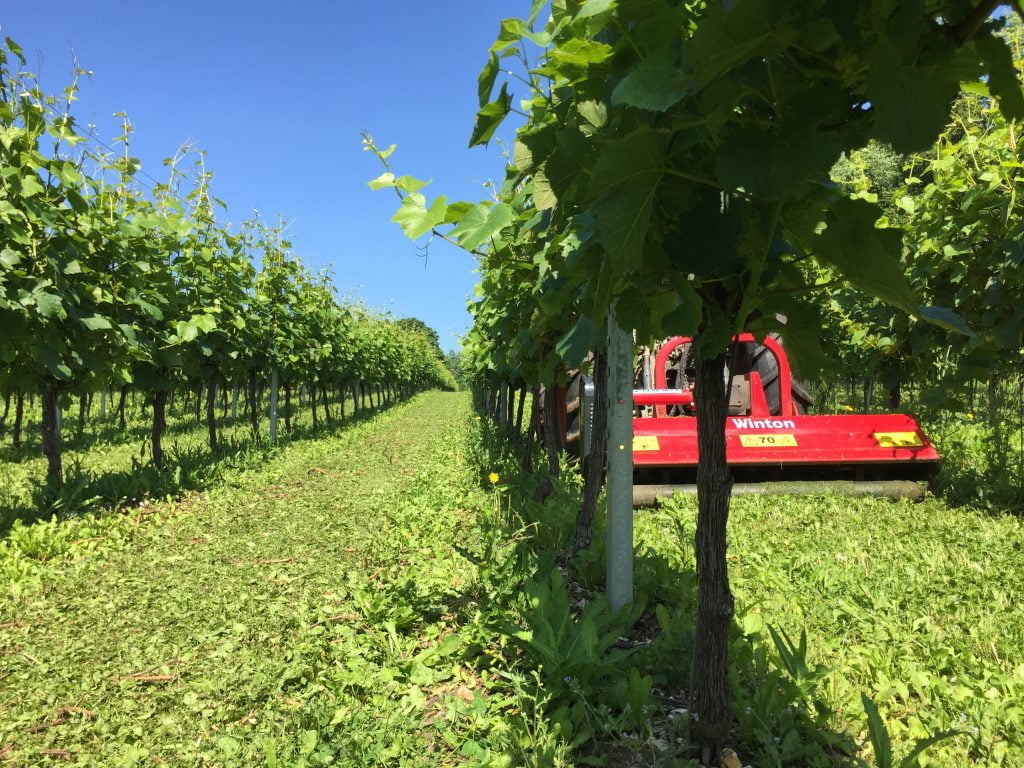
Running Your Vineyard
Before you start selling your wine, you will need to apply for a license from the Business and Enterprise Department of Alcohol Licensing. Within six months of planting, you will need to register with Wine Standards, so you can be included on the UK Vineyard Registry produced by the Food Standards Agency. These processes can take some time so it is advisable to get started as soon as possible.
It is also important to decide what alcohol strength you intend to produce, as well as whether the wine will be sparkling or not. This will affect the amount of tax duty you pay. The greater the strength, the more duty you will have to pay. Sparkling wine will also incur a higher duty.
Once all this is squared away, marketing your product can begin. Inviting retailers to see your vineyard can create interest, especially if it’s paired with a tasting. If you are thinking of selling directly to the public, hosting an event or tasting is a great way to showcase your products. Although it can be a long road to success, starting a vineyard can be very rewarding and as one of the fastest growing industries in the UK, you will be in good, award-winning company!

